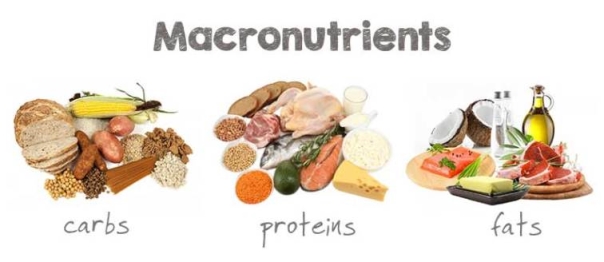When it comes to achieving your fitness goals, understanding the difference between micronutrients and macronutrients is essential. These two categories of nutrients play distinct roles in your body and must be properly balanced to support overall health and fitness. Let’s delve into each category:
Macronutrients:
Definition: Macronutrients are the nutrients that provide energy (calories) to the body and are required in relatively large amounts.

Understanding Micronutrients vs. Macronutrients: The Key to Balanced Nutrition
Types of Macronutrients:
- Carbohydrates: Carbs are the body’s primary source of energy. We can find them in foods like grains, fruits, vegetables, and legumes. Examples include rice, bread, pasta, potatoes, and fruits like bananas and oranges.
- Proteins: Proteins are essential for building and repairing tissues, as well as for producing enzymes and hormones. Good sources of protein include meat, poultry, fish, eggs, dairy products, tofu, and legumes.
- Fats: Fats are vital for energy storage, insulation, and hormone production. Healthy fat sources include avocados, nuts, seeds, olive oil, fatty fish, and coconut oil.
Micronutrients:
Definition: Micronutrients are essential vitamins and minerals that are required by the body in smaller quantities but are crucial for various physiological functions.

pills and multivitamins on a dark background, closeup
Types of Micronutrients:
- Vitamins: Vitamins are organic compounds that regulate various bodily functions, such as immune response, energy production, and cell repair. Examples include vitamin A, vitamin C, vitamin D, and the B-complex vitamins (B1, B2, B3, B5, B6, B7, B9, B12). Sources include fruits, vegetables, dairy products, and fortified foods.
- Minerals: Minerals are inorganic substances that play essential roles in bone health, muscle function, fluid balance, and nerve transmission. Examples include calcium, magnesium, iron, zinc, and potassium. Sources include dairy products, leafy greens, nuts, seeds, and whole grains.
Balancing your intake of macronutrients and micronutrients is crucial for optimizing your fitness and overall health. A well-rounded diet that includes a variety of whole foods from all food groups is key to meeting your nutritional needs and fueling your body for peak performance. Remember, consult with a healthcare professional or nutritionist to tailor your diet to your individual needs and goals.
Understanding Micronutrients vs. Macronutrients: The Key to Balanced Nutrition for Fat Loss, Muscle Building, Stress Management, and Body Inflammation
When it comes to achieving your fitness goals, whether it’s fat loss, muscle building, stress management, or reducing body inflammation, understanding the difference between micronutrients and macronutrients is crucial. Let’s delve deeper into why balanced nutrition is important for each aspect and the significance of proper hydration:
Macronutrients:
Fat Loss: Consuming the right balance of macronutrients is vital for fat loss. Protein, in particular, plays a crucial role in preserving lean muscle mass while promoting fat loss. Carbohydrates provide energy for workouts, helping to optimize calorie burn, while fats aid in satiety, keeping you fuller for longer and reducing the likelihood of overeating.
Muscle Building: Protein is the cornerstone of muscle building, as it provides the amino acids necessary for muscle repair and growth. Adequate intake of carbohydrates ensures glycogen stores are replenished, supporting optimal performance during workouts. Fats contribute to hormone regulation, which is essential for muscle growth and recovery.
Stress Management and Body Inflammation: Balanced macronutrient intake helps regulate blood sugar levels, which can impact stress management by stabilizing mood and energy levels. Additionally, consuming healthy fats can help reduce inflammation in the body, which is crucial for managing stress and preventing chronic diseases associated with inflammation.
Micronutrients:
Fat Loss: Micronutrients, such as vitamins and minerals, play a crucial role in metabolism and energy production, which are key factors in fat loss. For example, vitamin D has been linked to improved weight loss outcomes, while minerals like magnesium and zinc are involved in energy metabolism and insulin sensitivity.
Muscle Building: Micronutrients are essential for muscle function and repair. For instance, calcium and magnesium are necessary for muscle contractions, while zinc and vitamin C support collagen synthesis, aiding in muscle repair and recovery post-exercise.
Stress Management and Body Inflammation: Certain vitamins, such as the B-complex vitamins, play a role in neurotransmitter synthesis, which can influence mood and stress levels. Minerals like magnesium have calming effects on the nervous system, aiding in stress management. Additionally, antioxidants like vitamin C and E help combat oxidative stress and reduce inflammation in the body.

Proper Water Hydration
Proper hydration is crucial for overall health and fitness, regardless of your goals. Water is essential for nutrient absorption, digestion, and waste removal. Adequate hydration supports optimal performance during workouts, promotes muscle recovery, and helps regulate body temperature. Furthermore, staying hydrated can aid in appetite control, preventing overeating and supporting weight management efforts.
In conclusion, achieving your fitness goals, whether it’s fat loss, muscle building, stress management, or reducing body inflammation, requires a balanced approach to nutrition that includes both macronutrients and micronutrients. Additionally, ensuring proper hydration is essential for supporting overall health and optimizing performance.



